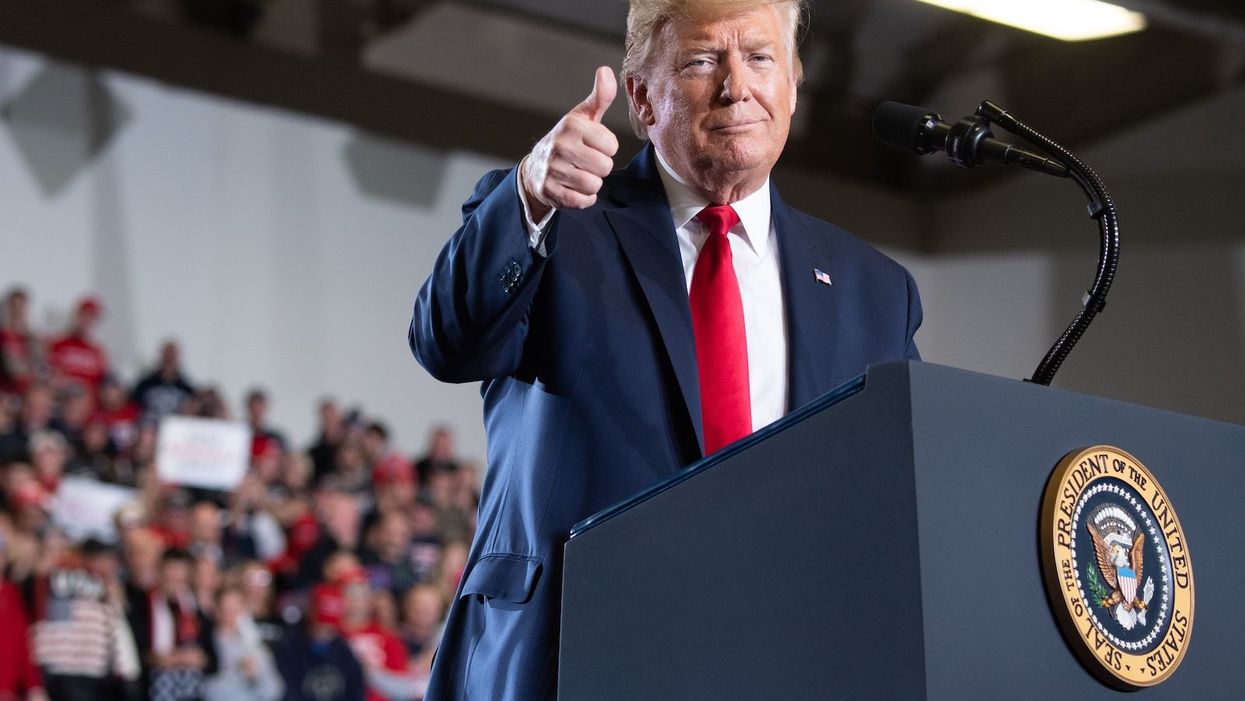
SAUL LOEB/AFP via Getty Images

'Their claim is based entirely on the loss of political power'
A federal court sided with President Donald Trump on Friday in dismissing a lawsuit involving more than 200 Democratic members of Congress who claim that he violated one of the U.S. Constitution's anti-corruption provisions.
A three-judge panel of the D.C. Circuit Court of Appeals unanimously ruled that the 215 congressional Democrats who brought the suit — which deals with the Constitution's foreign emoluments clause — didn't have the legal standing to do so, because, they did not constitute a majority of either House of Congress.
The court ruled that "our conclusion is straightforward because the Members — 29 Senators and 186 Members of the House of Representatives — do not constitute a majority of either body and are, therefore, powerless to approve or deny the President's acceptance of foreign emoluments." The ruling goes on to explain, "The Members were not singled out — their alleged injury is shared by the 320 members of the Congress who did not join the lawsuit — and their claim is based entirely on the loss of political power."
The lawsuit was first brought back in 2017 by a group of Capitol Hill Democrats led by Sen. Richard Blumenthal (D-Conn.). The plaintiffs argued that — due to his far-reaching business interests — Trump was in violation of the section of the Constitution that prohibits federal officers from taking money or gifts from foreign governments without Congress' consent.
"By virtue of that financial interest, Defendant has accepted, or necessarily will accept, 'Emolument[s]" from 'foreign State[s]' while holding the office of President of the United States," the lawsuit claimed.
For reference, the relevant section of the Constitution says, "No Title of Nobility shall be granted by the United States: And no Person holding any Office of Profit or Trust under them, shall, without the Consent of the Congress, accept of any present, Emolument, Office, or Title, of any kind whatever, from any King, Prince, or foreign State."
The lawsuit also said that because Trump "is not coming to Congress and identifying the emoluments he wishes to accept, the American people will have no way of knowing whether his actions as President reflect only his beliefs about what is best for the country, or whether they are partly motivated by personal financial considerations."
And while the Democrats in the suit are free to make those kinds of arguments in the political sphere, the ruling explains, the federal court system just isn't the place for them.
"The Members can, and likely will, continue to use their weighty voices to make their case to the American people, their colleagues in the Congress and the President himself, all of whom are free to engage that argument as they see fit," the opinion adds later. "But we will not — indeed we cannot — participate in this debate. The Constitution permits the Judiciary to speak only in the context of an Article III case or controversy and this lawsuit presents neither."
President Trump has faced other similar lawsuits regarding the constitutionality of his business empire, which is currently run by his two adult sons. A three-judge panel of the 4th Circuit Court of Appeals ruled in July that Washington, D.C., and Maryland lacked standing in their emoluments clause case regarding the Trump International Hotel in D.C. In September, the 2nd Circuit Court of Appeals resurrected a similar case that had previously been thrown out by a lower court.